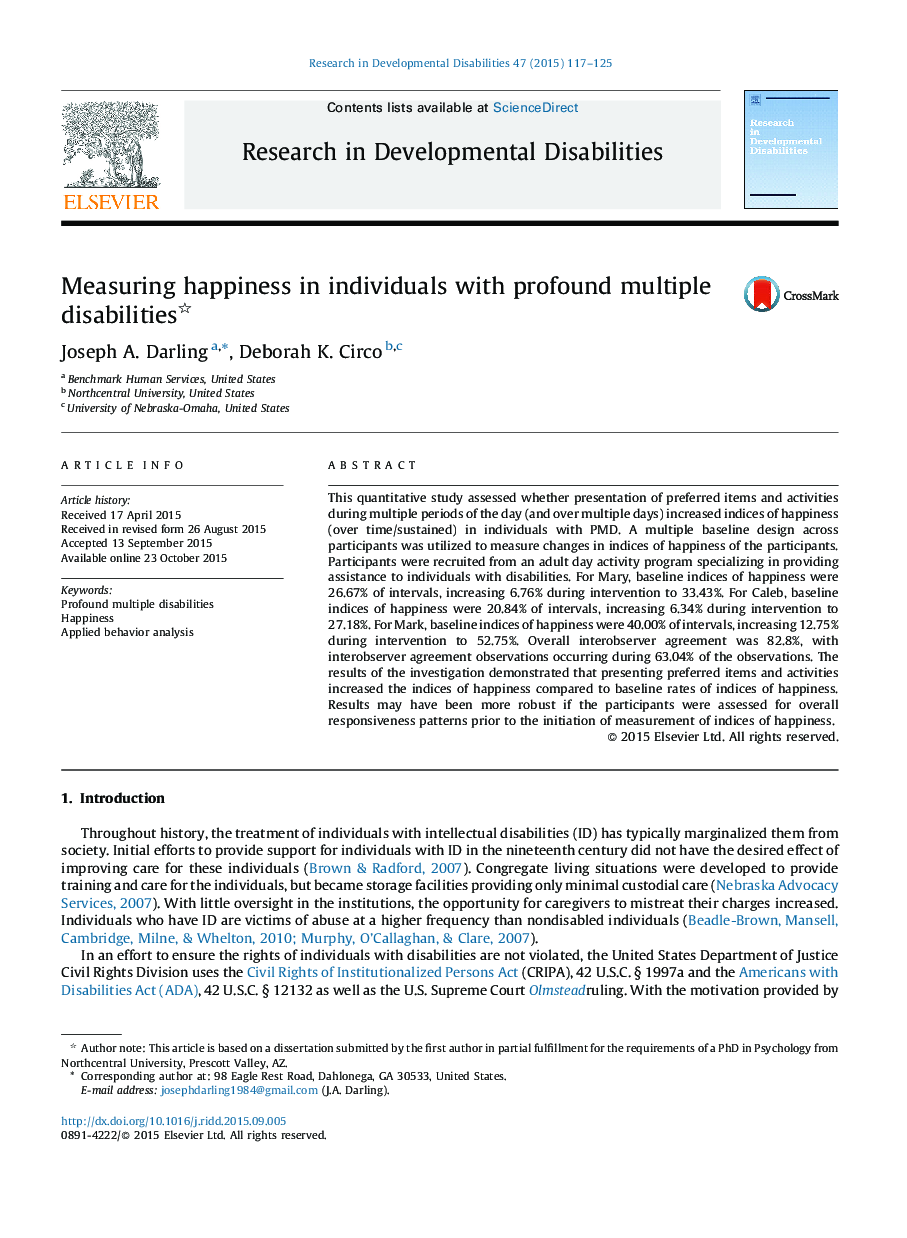| Article ID | Journal | Published Year | Pages | File Type |
|---|---|---|---|---|
| 371126 | Research in Developmental Disabilities | 2015 | 9 Pages |
•Preferred items & activities increased indices of happiness compared to baseline rates.•Measuring happiness in adults with profound multiple disabilities may improve quality of life.•Judicial & legislative mandates require individuals with PMD have the same rights as others.
This quantitative study assessed whether presentation of preferred items and activities during multiple periods of the day (and over multiple days) increased indices of happiness (over time/sustained) in individuals with PMD. A multiple baseline design across participants was utilized to measure changes in indices of happiness of the participants. Participants were recruited from an adult day activity program specializing in providing assistance to individuals with disabilities. For Mary, baseline indices of happiness were 26.67% of intervals, increasing 6.76% during intervention to 33.43%. For Caleb, baseline indices of happiness were 20.84% of intervals, increasing 6.34% during intervention to 27.18%. For Mark, baseline indices of happiness were 40.00% of intervals, increasing 12.75% during intervention to 52.75%. Overall interobserver agreement was 82.8%, with interobserver agreement observations occurring during 63.04% of the observations. The results of the investigation demonstrated that presenting preferred items and activities increased the indices of happiness compared to baseline rates of indices of happiness. Results may have been more robust if the participants were assessed for overall responsiveness patterns prior to the initiation of measurement of indices of happiness.
Graphical abstractFigure optionsDownload full-size imageDownload as PowerPoint slide
